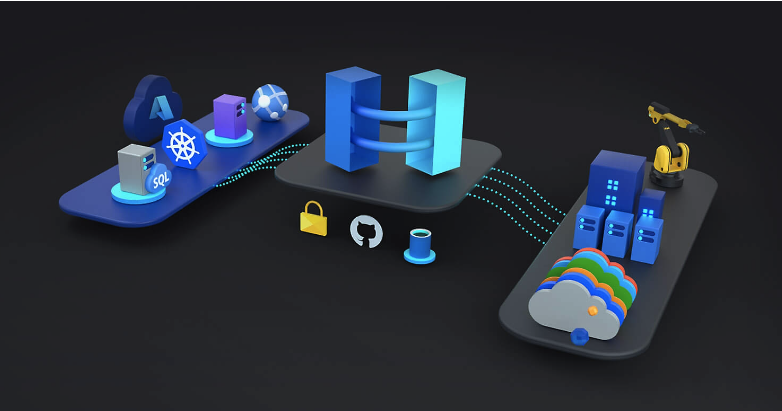Azure Arc: Your One-and-Done Guide
Managing the complexity and heterogeneity of cloud environments can be increasingly difficult as more workloads move to the cloud. Resources may be...
4 min read
cloudservuscom Dec 27, 2023 10:03:41 AM

Businesses are constantly looking for ways to accelerate and scale application development, improve operational efficiency, and streamline their digital transformation journeys.
Azure Kubernetes Service (AKS) provides a fast way to get started with cloud-native app development and deployment across Azure, data centers, or the edge. Organizations can quickly harness the full potential of containerized applications and streamline their deployment, management, and scalability.
From simplifying application development and increasing resource utilization to providing robust security features, AKS is a comprehensive solution for any business wanting to leverage Kubernetes’ power without managing the complexity of the underlying infrastructure.
AKS can help companies embrace cloud-native architectures and unlock new possibilities for their applications in the modern cloud era. Over 61% of organizations worldwide used Kubernetes in 2022, and it’s widely considered the container orchestration standard due to the pace of adoption.
With AKS, businesses can achieve seamless, cost-effective, scalable, and efficient application management and deployment to advance their modernization program.
Azure Kubernetes Service (AKS) is a managed container orchestration service by Microsoft that automates and optimizes containerized application deployment, management, and scaling via Kubernetes.
Kubernetes is a swiftly evolving, open platform that helps manage and organize containers, which are like self-contained packages that contain all the necessary components for an application to run in.
It acts as a conductor for containers, ensuring they run smoothly and efficiently by handling tasks like starting, stopping, and scaling containers and managing their communication. Basically, Kubernetes ensures containers are in the right place at the right time and functioning properly.
Developers and IT teams can use Kubernetes to build applications in any preferred programming language, messaging bus, operating system, or library. Kubernetes also reduces the complexity of running applications across different machines and provides features like load balancing and self-healing to ensure applications are accessible and resilient.
AKS makes running and managing containers in a production environment easier by providing features like load balancing, scaling, and rolling updates. Businesses can focus on deploying and managing their applications efficiently because AKS takes care of the foundational infrastructure and Kubernetes control plane.
As applications grow increasingly complex, with multiple containers running on different services, managing them can become challenging. Kubernetes makes this process more efficient by using an open-source API that controls how and where the containers run.
It organizes the containers into pods (groups), the basic operational units in Kubernetes. The pods are scheduled to run on virtual machines within a cluster based on the available resources and requirements of each container.
Kubernetes automatically manages service discovery, meaning it keeps track of where each container is running and ensures other containers can find and communicate with them. It also incorporates load balancing so traffic is evenly distributed among the containers to mitigate overloading.
Kubernetes tracks the allocation of resources like memory and CPU to ensure that each container has enough resources to run smoothly. If a container needs more or less resources, Kubernetes can scale it accordingly.
Additionally, it takes action if there's a problem with the health of a container, automatically restarting the container if it crashes or becomes unresponsive. It can even replicate containers, creating more copies to guarantee the availability of the application.
Container adoption is fueled by the tangible technical and business value it can provide, especially given the increasing maturity of hybrid cloud environments and the unrelenting pursuit to meet digital transformation objectives.
The container trend is here to stay and on par with other buzzworthy technologies, like artificial intelligence, edge computing, and machine learning. Gartner reports that over 70% of organizations will run at least two containerized applications in production this year, an increase from under 20% in 2019.
Portability is a significant driver of container adoption, which enables developers to move applications between environments quickly. The ability to develop applications via small services rather than a monolithic architecture is another popular feature, making it easier to make nominal adjustments to an application and instantly push it out without impacting other microservices.
But containerization is operationally intensive compared to maintaining applications on virtual machines or physical services. Productionizing them often requires a strategic orchestration layer, like Kubernetes, plus varying CI/CD, tracing, logging, and monitoring tools.
AKS can introduce significant versatility and efficiency that enables businesses to leverage containerization for web applications, data processing and analytics workloads, and microservices architectures without the burden of complex container management tasks.
According to McKinsey, if developers devote more than 10-20% of their coding time on container configuration, security, failover, and other infrastructure pain points, it’s better to just address the challenges using cloud service provider (CSP) services.
Additionally, Kubernetes initiatives can only be successful if software product teams can design the container platform to provide benefits like application lifecycle management, user experience, and flexibility without sacrificing functionality in relation to the development environment.
There’s also a severe scarcity of relevant skills for container configuration and orchestration, which may make it difficult for businesses to move forward with their modernization agendas.
Many companies are turning to experienced CSPs, like CloudServus, that can help them get up and running with AKS so they can quickly benefit from containerization. We’re an industry-recognized, High-Quality Microsoft Solutions Partner with comprehensive services designed to enable you to imaginatively develop, implement and manage Kubernetes via AKS.
Our dedicated Microsoft consultants can deliver deep insights into AKS, accelerate your adoption of containerization, and establish successful implementation and utilization of AKS that aligns with your business goals and requirements.
Reach out to us at CloudServus to get started with AKS and leverage the end-to-end benefits of containerization.

Managing the complexity and heterogeneity of cloud environments can be increasingly difficult as more workloads move to the cloud. Resources may be...

The developer experience is now recognized as a vital factor in software delivery; 58% of software engineering leaders indicate that it’s very or...

The role of the Chief Information Officer (CIO) is adapting in the post-COVID era. As technology continues to rapidly evolve, the role of the CIO has...